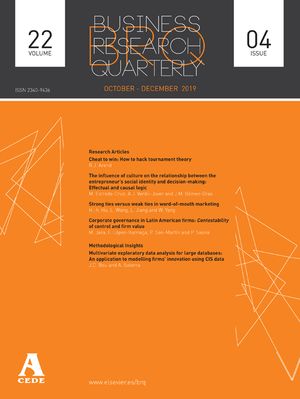Este trabajo pretende aportar evidencia empírica sobre los principales determinantes estratégicos de las decisiones de «hacer o comprar» en el ámbito de los sistemas de información, para lo cual utilizamos las aportaciones realizadas desde la teoría de recursos y capacidades. Las hipótesis que se derivan de nuestro modelo se contrastan para el caso concreto de la implantación de un sistema de información de recursos humanos. Los resultados sugieren que es la posesión de una capacidad organizativa, no el conjunto de destrezas técnicas de los empleados, el factor fundamental en este tipo de decisiones, si bien el carácter estratégico del sistema implantado parece que también juega un papel importante.
This paper intends to provide empirical evidence on the main strategic determinants of ‘make or buy’ decisions in an information system context by applying a resource-based perspective. Hypotheses drawn from our model are tested for the implementation of a human resource information system. Results show that the possession of an organizational capability, not the set of technical skills, is the main factor of this type of decisions, though the strategic contribution of the system implemented also seems to play an important role.
El autor agradece los comentarios y sugerencias de los revisores de este artículo, cuya incorporación al trabajo ha contribuido a la mejora y enriquecimiento del mismo. Asimismo, deseo manifestar mi gratitud al Profesor José E. Navas López por su apoyo durante la realización de esta investigación.




